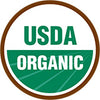Organic foods are food products that are certified by the USDA to meet the regulations of the National Organic Program. The NOP logo assures consumers that the organic foods they purchase are consistent with federal standards. Farmers and food producers who don't meet the USDA's standards may not use the logo.
Diet and Health
Diet and nutrition are closely linked to health. Poor nutrition can lead to chronic health problems due to vitamin deficiency. A healthy diet is important for lowering health risks like heart disease, diabetes, obesity and cancer.
OFPA and NOP

In 1990, the Organic Foods Production Act (OFPA) established a new USDA National Organic Program (NOP) to set uniform, national standards for the production, handling and processing of organically grown agricultural products. Foods that carry the NOP organic logo on their label "use materials and practices that enhance the ecological balance of natural systems and that integrate the parts of the farming system into an ecological whole." (USDA)
The OFPA and NOP are intended to assure consumers that the organic foods they purchase are produced, processed, and certified to be consistent with national organic standards.
NOP Standards
The organic standards (found in Title 7, Part 205 of the Code of Federal Regulations) describe the specific requirements that must be verified by a USDA-accredited certifying agent before products can be labeled USDA organic. Overall, organic operations must demonstrate that they are protecting natural resources, conserving biodiversity, and using only approved substances.
Organic farming systems rely on ecologically based practices which include cultural and biological pest management, exclusion of all synthetic chemicals, antibiotics, and hormones in crop and livestock production. Organic food production prohibits the use of synthetic pesticides and fertilizers, genetically modified organisms, irradiation, and certain other practices.
The National Organic Program establishes three types of organic labeling: "100% organic," "organic," and "made with organic products." One hundred percent organic products must contain all organic material. Products labeled as "organic" must contain at least 95% organic material. And products labeled as "made with organic products" must contain at least 70% organic material.
|
100% Organic
|
Organic
|
Made With Organic Products
|
Farmers who wish to call their products "organic" need to be certified by the USDA or an authorized agency. Farmers must comply with the organic standards, maintain extensive paperwork and be certified annually. A farm's soil must remain free from prohibited substances for a period of years before it can produce organic food. (Such farms are referred to as "in transition.") Farmers and food producers who don't follow the USDA organic regulations may not use the organic label on their products.
Is Organic Food Better For Us?
Few scientific studies exist regarding health benefits of an organic diet. A study published by the National Research Council in 1993 determined that for infants and children, the major source of exposure to pesticides is through diet. A recent study in 2006 measured the levels of organophosphorus pesticide exposure in 23 schoolchildren before and after replacing their diet with organic food. In this study it was found that levels of organophosphorus pesticide exposure dropped dramatically and immediately when the children switched to an organic diet.
Ecologically, organic farming is sustainable, and less harmful to the environment than heavy use of synthetic fertilizers. Another consideration for some people is the ethical treatment of livestock required by the National Organic Program.
The Argument For Organic Food
In the old days of small farms and markets, the consumers' motto was "know your farmer." In our modern world, the USDA's NOP regulations for safe, ethical, sustainable methods of food production and labeling assure consumers of quality control and food safety. Each step of the production process, from soil and seed to label, is inspected and regulated by the USDA and its agents.
According to the USDA, "the food production and handling practices prescribed by the USDA organic regulations are deeply rooted in environmental stewardship and resource conservation."
Further Reading
Electronic Code of Federal Regulations
Organic Foods Production Act of 1990
USDA Agricultural Marketing Service Organic Standards
Should I Purchase Organic Foods? (USDA National Agricultural Library)
Benefits of Organic (Organic Trade Assoc.)